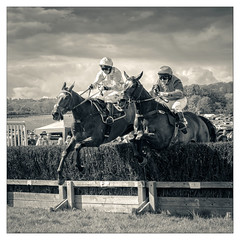“Kaniya-kaniyang Rizal…”
–Cris Villanueva in Bayaning Third World–
Today, the Philippines, as always, celebrates its national hero’s 113th martyrdom. As always, renowned politicians, attention-hungry statesmen, and a wild caboodle of TV-familiar faces who are in control of government and business are all over public plazas frothing out “nationalistic” fervor in relation to Rizal’s life, works, and influence. This will continue on and on and on, a vicious and aching cycle for a nation attuned to the vices of modern technology.
Nowadays, who cares about Rizal? Who reads him? I mean, who really reads him? Would an avid Rizalian be able to share his heroism towards the masses who would rather pay more attention to bring food to their homes at least twice a day? Ambeth Ocampo does, but mostly towards students who are affluent enough to be able to enroll in posh schools like La Salle or the Ateneo.
But here lies the question: why is there a need to study Rizal? For the simple reason that he is the key towards identifying the Filipino national identity. Not that he was the first Filipino (in a way, he was, in the romantic context of León Mª Guerrero), but whenever there is a mention of Philippine history, this Calambeño will easily come into mind. Besides, Rizal did have something to do with national identity; he lived in that identity which was later lost when we were invaded in 1898 and which, up to now, our generation is still looking for (or is it?)
Rizal, as well as his contemporaries, but especially him, knew where he stood. National identity was never a dilemma nor a mystery for him. Nor was it a mystery for the rest of the Ilustrados and majority of Filipinos. Knowledge of national identity is power. And with this, Rizal and the rest of the Ilustrados had knowledge of this power; the only problem was some of them didn’t know how to use it.
The scenario today is twice as frightening: we don’t know our true national identity, thus we are powerless.
Since Rizal, among other venerated people of the past, is the most conspicuous and most widely known throughout the islands, it is but wise to use him as the key to opening that treasure chest of knowledge of our national identity that has been long searched for and debated.
But there is yet another problem: Which Rizal should we use?
This realization behind the mystery of Rizal was raised upon watching the last scenes of Mike de León’s film biopic Bayaning Third World (winner of the Gawad Urian Awards 2000).
At the end of the movie, Cris Villanueva’s character, which was dumbfounded behind the controversies surrounding Rizal’s retraction, couldn’t help but mention “Kaniya-kaniyang Rizal” (each has his own version of Rizal). This was a result of his and Ricky Daváo’s character’s frustration over their unresolved search for the truth behind Rizal’s retraction from Masonry.
Did he or did he not retract?
Standing on top of the heap of all this controversy was a Vincentian from the San Carlos Seminary, Jesús Mª Cavanna, C.M.
Several decades ago, he published a massive tome: Rizal’s Unfading Glory (a Documentary History of the Conversion of Dr. José Rizal, 1956). Cavanna’s brilliant defense that Rizal did return to the Catholic Church seemed up to now unbeatable. In the book, through the strengthening of the “Rizal did retract” postulation, Cavanna virtually stripped Rizal’s novels and vitriolic essays off every trace of heroism. Indeed, what is so heroic behind irresponsible calumnies against an institution which technically created a nation? But the gist of the book is that Rizal’s heroism may be found in the retraction itself — he fought for what he thought was evil, unjust. He aligned himself against forbidden secret societies, read books that were included in the Index of Forbidden Books. All this he did for love of country. The retraction he did for love of God.
In view of the foregoing, the truth behind Rizal’s retraction is terribly crucial: if he didn’t retract, that only goes to show that everything he wrote against the Catholic Church, no matter how baseless and Satiric, were true. That would have given Christianity in the country a gaping hole. That could only mean that Dan Brown is right about the Church after all. On the other hand, if Rizal did retract, what’s all this talk of Rizalian heroism during his birth and death anniversaries?
No matter how strong Fr. Cavanna’s evidence is, skeptics remain. Thus, it is up to the historian in general and to the Rizalian scholar in particular to finish this discussion once and for all. We may never know where Bonifacio was exactly buried. We may never know where the first cry of revolt was made. We may not even know the real reason behind Gomburza’s execution. But with Rizal, perhaps the most self-documented Filipino hero of all time, everything to know about him is all set on the table; all we need to do is to have a discerning eye, a conscious mind, a relaxed judgment of facts.
Not to mention a huge amount of patience and time.
In order to know Rizal, we should follow and faithfully observe his life. One step at a time. In order to know Rizal, we have to get into his mind.
To the historian and Rizalian scholar lies the brunt of responsibility. He must think and feel like Rizal. He must follow his every movement — from his childhood days in Calambâ to his misadventures in Biñán. From his poetic youth in Manila to his sojourn in Singapore and elsewhere. From his cold lonely nights in Europe to his peaceful days in Dapitan. From his final moments in Fort Santiago to Eternity.
He must think like Rizal. He should literally read all the books Rizal read, page by page, word for word. After reading, the Rizalian should learn how to daydream like Rizal, and how the latter felt after reading the triumphs of his literary heroes. Was it a feeling of triumph, of wild ambition, of a realization?
He should feel like Rizal: meditate on the heartaches and the pains of a broken heart, from Batangas all the way to Europe. He should discover how Rizal felt when he secretly left his parents on his way to the Old World.
He should be able to answer why Rizal hated the very institution which nurtured his hunger for knowledge, and quenched his thirst for the sciences. Why did he rebel against those who supported his desire to make love with the arts and letters?
The Rizalian should know the hidden fears, excitement, and awe that Rizal must have felt upon entering the Lodge door. If the need arises, the Rizalian, if religious, should make a pact with God before entering the Lodge just as to know more about the evolution of this Renaissance Man from Calambâ. Within the Lodge lies so many answers behind the evolution of Rizal’s rebellious character later on in his life.
The Rizalian must learn how to talk to God, for that was how Rizal was: deeply spiritual man despite his Masonic degrees. And in this spiritual puzzle, the Rizalian must be able to delve in order to solve it.
He must undergo a lot of challenges. He must undergo a transformation. He must become José Rizal. Because Rizal was never human. First and foremost, he was a man, sent by God to challenge our iniquities in these direst of times.
All this the Rizalian must face — if he wishes to finally decipher Rizal and his religious conversions. Only an end to this retraction hullaballoo will finally get rid of the rust that has encrusted our “key” which can open the age-old chest hiding our national identity…
For each Filipino cannot have his own version of Rizal, nor he be allowed to have his own fancy of the national hero…
We should only have one Pepe Rizal.
*******
This is a repost (with minor edits) from an article which I wrote for Skirmisher last 19 June 2008.







